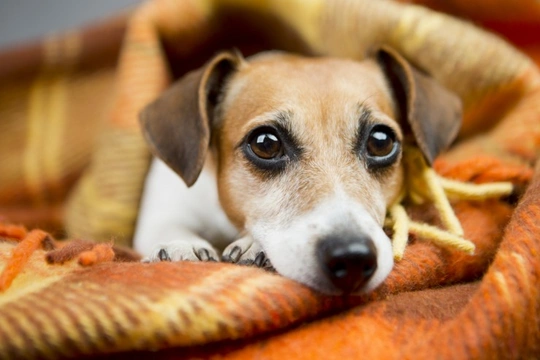
Salmonella Poisoning in Dogs
Although dogs can eat some pretty disgusting things they find lying around and some suffer an upset tummy when they do, there is a risk of them getting very ill which means a trip to the vet could be essential. Dogs, just like humans can get salmonella poisoning if they ingest any of the bacteria contained in contaminated food. It can lead to all sorts of other health issues like gastroenteritis to name but one and the bad news is that it’s contagious which means it can be passed on to other dogs, people and cats too.
What Causes Salmonella Poisoning in Dogs?
Dogs get salmonella poisoning from ingesting any food that's contaminated with the Salmonellosis bacteria, but the bad news is they can also catch it should they come into contact with any saliva or faeces of another dog that's been infected. Humans and cats can pass it on to a dog too. With this said, the bacteria is typically found in the following foods:
- Raw meat
- Raw chicken
- Raw eggs
Dogs are scavengers by nature and many will go through the rubbish bin, eating anything they find no matter how “off” it may be. They will also tuck into the stinkiest dead animal they come across when out on a walk. Dead animals are extremely “high risk” because they can be full of the harmful salmonella bacteria. A lot of birds carry the bacteria and should a dog come into contact with things like a bird feeder, they could get salmonella poisoning.
Symptoms to Watch Out For
A dog would typically start showing symptoms of having been infected anything from 6 to 72 hours after having come into contact with the bacteria. The first symptom is for a dog to develop a high fever but this is then quickly followed by a bad case of vomiting and diarrhoea. Other signs of salmonella poisoning include:
- Loss of appetite
- Lethargy
- Depression
- Extreme dehydration
If you think your dog may have salmonella poisoning it's really important they be taken to the vet as a matter of urgency. It's also essential they be kept well away from any other pets, people and children who live in the same home. You would also need to thoroughly clean everything your dog has come into contact with by using bleach mixed with water to a ratio of 1 part bleach to 10 parts water. This helps sterilise all the places and things your pet may have infected. You would also need to put all your dog's bedding, toys and anything else through the washing machine and anything that can't go in should either be disposed of carefully or washed with hot water, soap and bleach. It's also really important to thoroughly wash your hands after touching your dog and anything they have come into contact with because it’s so contagious.
Treatment
Once a vet has established whether or not your dog is suffering from salmonella poisoning having thoroughly examined them and having noted down what they may have eaten, they would then recommend a treatment which may well include giving your dog antibiotics known to have an effect on the bacteria. Depending on the severity of the infection, a vet might want to keep your dog in the surgery so their condition can be closely monitored and if necessary give them IV fluid therapy which ensures they don't get too dehydrated.
It can take many weeks for a dog to fully recover from salmonella poisoning. The good news is it is not usually fatal with mature dogs getting over an infection and going on to enjoy good health. It is however, more dangerous for puppies and young dogs because their immune systems are not as strong.
How to Prevent Your Dog from Getting Salmonella Poisoning
It's important to cook any fresh meat that’s fed to a dog and to avoid giving them any raw eggs. Chicken in particular needs to be well cooked and de-boned before it is fed to dogs. It's also really important to thaw meat out thoroughly before cooking it to minimise the chance of meat getting contaminated. It is also best to boil eggs for at least seven minutes to avoid the risk of them carrying any of the harmful bacteria.
Preventing your dog from going through the garbage is another way of reducing the risk of them being infected. However, it's harder to stop them from devouring a dead animal when you are out on a walk through the countryside because the chances are they would be off their leads to enjoy a little freedom. This is when their noses might just take them to something that's ripe and full of bacteria. Keeping dogs away from bird feeders can be hard if you like to see wild birds in your garden, but you can fence off an area to stop your dog getting near a bird house or any feeders you've placed outside.
Conclusion
Salmonella poisoning in dogs is very serious because they can dehydrate very quickly due to the fact they go off their food and water. The bacteria can be found in contaminated food and dogs get infected when they eat it. However, raw eggs, meat and chicken can also contain the bacteria, which is why it's important to thoroughly cook any meat you feed your dog. Because it's so contagious, if you suspect your dog may be suffering from salmonella poisoning you need to keep them away from other pets as well as people and to get them to the vet as a matter of urgency.



